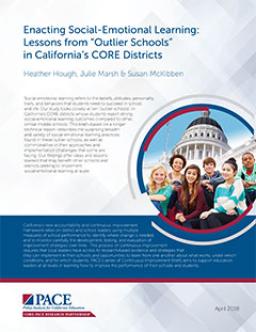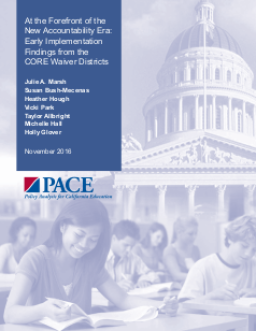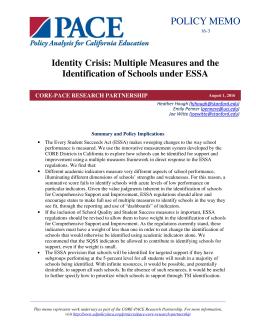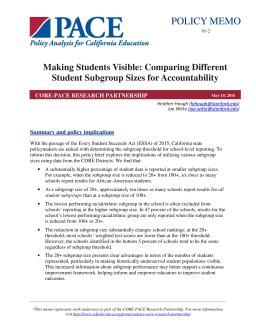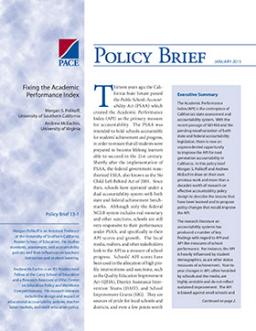Summary
This study explores ten "outlier schools" in California's CORE districts that have strong social-emotional learning outcomes. The brief and infographic summarize the various practices found in these schools and the common implementation challenges faced. The findings offer lessons that can help other schools and districts implement social-emotional learning at scale.
Summary
American schools have long suffered from inequitable distribution of funding, resources, and effective teachers. The LCFF reform in California is a promising solution to address achievement gaps for high-need students, but successful implementation is critical. Research has found that stakeholder engagement, explicit equity frameworks, and evidence-based programs are crucial to ensure positive impact. Studies have also revealed challenges such as underspending funds and insufficient stakeholder engagement, highlighting the need for continuous improvement.
Summary
California and the US are undergoing a cultural shift in school accountability policies towards locally-determined measures of school performance. Lessons can be learned from the CORE districts, which developed an innovative accountability system, emphasizing support over sanctions, and utilizing multiple measures of school quality. The CORE districts' measurement system and collaboration hold promise for improving local systems, but efforts to build capacity remain a work in progress.
Summary
This report examines the Every Student Succeeds Act (ESSA) and how schools can be identified for support and improvement using a multiple measures framework. The authors find that different academic indicators measure different aspects of school performance and suggest that states should be allowed to use multiple measures instead of a summative rating. They also find that non-academic indicators are not given enough weight and suggest a clarification in federal policy.
Summary
This policy brief analyzes the implications of using various subgroup sizes for school-level reporting under the ESSA. Data from the CORE Districts shows that a subgroup size of 20+ offers clear advantages in representing historically underserved student populations. The authors also produced a supplementary report comparing subgroup sizes of 20+ and 30+ in response to new ESSA regulations.
